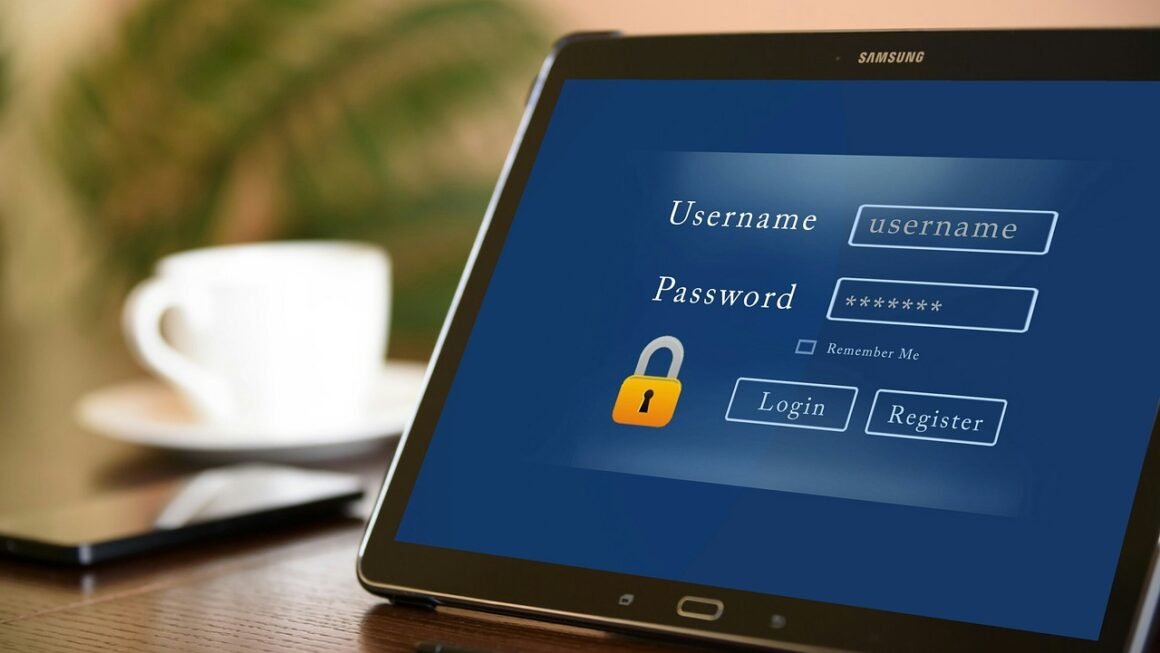In today’s digital landscape, safeguarding your devices from online threats is more critical than ever. With the increasing sophistication of malware, viruses, and other cyber threats, having robust antivirus software is no longer optional—it’s a necessity. This comprehensive guide delves into the world of antivirus software, covering everything from its importance and functionality to choosing the right solution for your needs.
Understanding Antivirus Software
What is Antivirus Software?
Antivirus software, also known as anti-malware, is a program or set of programs designed to prevent, detect, and remove malicious software from your computer, tablet, or smartphone. These malicious programs, collectively called malware, can include viruses, worms, trojans, ransomware, spyware, and adware.
- Functionality: Antivirus software works by scanning files and programs on your device for known threats, using a database of virus definitions. It also employs heuristic analysis to identify suspicious behavior that might indicate new or unknown malware.
- Real-time Protection: Most modern antivirus solutions offer real-time protection, constantly monitoring your system for malicious activity in the background.
- Scheduled Scans: Regular scheduled scans are essential for thoroughly checking your entire system for dormant or hidden threats.
Why You Need Antivirus Software
The internet is rife with threats that can compromise your data, damage your device, and steal your identity. Here’s why antivirus software is essential:
- Protection from Malware: It prevents viruses, worms, and other malicious software from infecting your device.
- Data Security: It helps protect your personal information, financial data, and sensitive documents from being stolen or compromised.
- System Performance: While some older antivirus programs were resource-intensive, modern solutions are designed to minimize impact on system performance.
- Peace of Mind: Knowing your device is protected gives you peace of mind while browsing, downloading files, and engaging in online activities.
- Financial Security: Antivirus can prevent ransomware attacks, which demand payment to restore access to your files. A recent study showed that the average ransomware payment was $200,000 in 2023.
How Antivirus Software Works
Antivirus software employs a variety of techniques to protect your device.
- Signature-Based Detection: This is the traditional method, where the software compares files against a database of known virus signatures. When a match is found, the file is flagged as malicious. This method is effective against known threats.
- Heuristic Analysis: This advanced technique analyzes the behavior of files and programs to identify suspicious activity that might indicate a new or unknown virus. For example, if a program attempts to modify system files or send out large amounts of data, it could be flagged as suspicious.
- Behavioral Monitoring: Similar to heuristic analysis, behavioral monitoring observes the actions of programs in real-time to detect malicious behavior. This is particularly effective against zero-day exploits (attacks that exploit previously unknown vulnerabilities).
- Sandboxing: Some antivirus solutions use sandboxing, which involves running suspicious files in a virtual environment to see how they behave without affecting your actual system. This allows the antivirus to identify malicious intent before it can cause any harm.
Choosing the Right Antivirus Software
Factors to Consider
Selecting the right antivirus software depends on your specific needs and usage patterns. Consider the following factors:
- Operating System: Ensure the software is compatible with your operating system (Windows, macOS, Android, iOS).
- Budget: Antivirus software ranges from free to premium subscriptions. Determine how much you are willing to spend.
- Features: Look for features such as real-time protection, scheduled scans, web filtering, email scanning, and ransomware protection.
- Performance: Choose a solution that doesn’t significantly slow down your system. Read reviews and performance tests before making a decision.
- User-Friendliness: Opt for software with a user-friendly interface that is easy to navigate and configure.
- Customer Support: Check if the vendor offers reliable customer support in case you encounter any issues.
Free vs. Paid Antivirus Software
Many free antivirus solutions offer basic protection, while paid versions typically include more advanced features.
- Free Antivirus:
Pros: Cost-effective, provides basic protection against common threats.
Cons: May lack advanced features like ransomware protection, web filtering, and priority customer support. Often supported by advertising or data collection.
Examples: Avast Free Antivirus, AVG AntiVirus Free, Windows Defender (built into Windows 10 and 11).
- Paid Antivirus:
Pros: Comprehensive protection with advanced features, dedicated customer support, and often, better detection rates.
Cons: Requires a subscription fee.
Examples: Norton 360, McAfee Total Protection, Bitdefender Total Security, Kaspersky Total Security.
Top Antivirus Software Options
Here are some of the top antivirus software options currently available:
- Norton 360: Offers comprehensive protection, including a firewall, password manager, and cloud backup.
- McAfee Total Protection: Provides robust security features, including identity theft protection and a safe web browsing tool.
- Bitdefender Total Security: Known for its excellent malware detection rates and minimal impact on system performance.
- Kaspersky Total Security: Offers a wide range of features, including parental controls, webcam protection, and file shredder.
- Avast Premium Security: Provides advanced threat protection, including a firewall, anti-spam filter, and ransomware shield.
Maintaining and Updating Antivirus Software
Importance of Regular Updates
Antivirus software is only effective if it’s up-to-date. Malware evolves rapidly, and new threats emerge every day. Regularly updating your antivirus software is crucial for maintaining optimal protection.
- Virus Definitions: Updates include the latest virus definitions, which are essential for identifying and blocking new threats.
- Software Updates: Updates also include bug fixes, performance improvements, and new features.
Scheduling Scans
Regular scheduled scans are essential for thoroughly checking your system for malware.
- Frequency: Schedule scans at least once a week, or more frequently if you frequently download files or visit high-risk websites.
- Full System Scan: Occasionally perform a full system scan to check all files and folders on your device.
- Custom Scans: Customize your scans to target specific areas, such as your Downloads folder or temporary files.
Best Practices for Online Security
While antivirus software is essential, it’s just one component of a comprehensive online security strategy.
- Use Strong Passwords: Create strong, unique passwords for all your online accounts. Consider using a password manager to generate and store your passwords securely.
- Enable Two-Factor Authentication: Enable two-factor authentication (2FA) whenever possible to add an extra layer of security to your accounts.
- Be Wary of Phishing: Be cautious of suspicious emails, links, and attachments. Never click on links or open attachments from unknown senders.
- Keep Software Updated: Keep your operating system, web browser, and other software up-to-date with the latest security patches.
- Use a Firewall: A firewall helps protect your network by blocking unauthorized access. Most operating systems include a built-in firewall, but you can also use a dedicated firewall appliance.
- Secure Your Wi-Fi Network: Use a strong password for your Wi-Fi network and enable WPA3 encryption.
- Back Up Your Data: Regularly back up your important data to an external drive or cloud storage service. This will protect your data in case of a malware infection or hardware failure.
Dealing with Malware Infections
Identifying a Malware Infection
Recognizing the signs of a malware infection is crucial for taking prompt action. Common symptoms include:
- Slow Performance: Your computer runs significantly slower than usual.
- Unexpected Pop-ups: You see frequent pop-up ads or messages.
- System Crashes: Your computer crashes frequently.
- Strange Error Messages: You see unusual error messages.
- Unauthorized Access: Your accounts are accessed without your permission.
- Ransom Demands: You receive a ransom demand to restore access to your files.
Removing Malware
If you suspect your device is infected with malware, take the following steps:
Conclusion
Protecting your digital life with robust antivirus software is no longer a luxury—it’s an absolute necessity. By understanding the threats, choosing the right software, and following best practices for online security, you can significantly reduce your risk of becoming a victim of cybercrime. Regularly update your software, be vigilant online, and stay informed about the latest threats to ensure your devices and data remain safe and secure.



